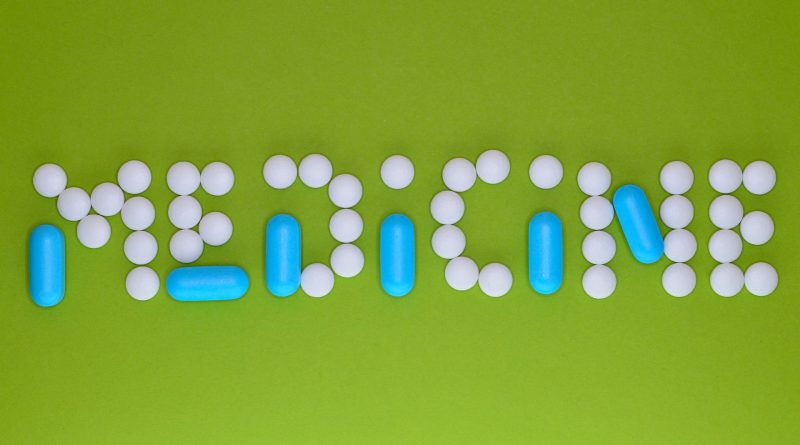Pfizer’s COVID-19 Antiviral PAXLOVID Approved by UK Regulator
Pfizer’s COVID-19 Antiviral, PAXLOVID, has been authorised for use in people over 18 with mild to moderate COVID-19 and at least one risk factor for developing severe illness, the U.K.’s Medicines and Healthcare Products Regulatory Agency (MHRA) said on Friday.
The MHRA has found the oral antiviral PAXLOVID treatment “to be safe and effective at reducing the risk of hospitalisation and death in people with mild to moderate Covid-19 infection, who are at an increased risk of developing severe disease”.
MHRA Chief Executive June Raine said in a statement:
“We now have a further antiviral medicine for the treatment of Covid-19 that can be taken by mouth rather than administered intravenously. This means it can be administered outside a hospital setting before Covid-19 has progressed to a severe stage.”
The United Kingdom has ordered 2.75 million courses of the tablet which is partially based on an existing HIV medication developed by pharma giant Pfizer. PAXLOVID will now be added to the UK’s COVID-19 antiviral medicine arsenal, which also includes Merck & Co.’s antiviral pill, molnupiravir, which was approved by the British regulator in November 2021. The U.S. Food and Drug Administration (FDA) authorizsd the emergency use of PAXLOVID™ on 22nd December last year. Pfizer announced an agreement with the U.S. government to supply 10 million treatment courses of PAXLOVID, with delivery fulfillment expected to be completed in 2022.
The treatment includes nirmatrelvir, a novel main protease (Mpro) inhibitor originating in Pfizer’s laboratories, which was specifically designed to block the activity of the SARS-CoV-2 Mpro, an enzyme that the coronavirus needs to replicate.
Paxlovid reduced risk of COVID-19 related hospitalisation and death by 89%
In a Phase 2/3 EPIC-HR clinical trial in high-risk adults with symptomatic COVID-19 infection, a five day treatment course of Paxlovid reduced the risk of COVID-19 related hospitalisation and death within 28 days by 89% when compared to a placebo group when treatment was started within 3 days of the onset of COVID-19 symptoms. The number of hospitalisations and deaths were 0.8% (3 out of 389) in the Paxlovid group compared with 7% (27 out of 385) in the placebo group. Similar favourable results were seen in patients when treatment was started within 5 days of the start of symptoms.
About PAXLOVID™ (nirmatrelvir [PF-07321332] tablets and ritonavir tablets)
PAXLOVID is a SARS-CoV-2 main protease (Mpro) inhibitor (also known as SARS-CoV2 3CL protease inhibitor) antiviral therapy. It was developed to be administered orally so that it can be prescribed at the first sign of infection or, pending clinical success of the rest of the EPIC development program and subject to regulatory authorization, at first awareness of an exposure – potentially helping patients avoid severe illness (which can lead to hospitalization and death) or avoid disease development following contact with a household member who contracts COVID-19. Nirmatrelvir [PF-07321332], which originated in Pfizer laboratories, is designed to block the activity of the Mpro, an enzyme that the coronavirus needs to replicate. Co-administration with a low dose of ritonavir helps slow the metabolism, or breakdown, of nirmatrelvir in order for it to remain active in the body for longer periods of time at higher concentrations to help combat the virus.
Nirmatrelvir is designed to inhibit viral replication at a stage known as proteolysis, which occurs before viral RNA replication. In preclinical studies, nirmatrelvir did not demonstrate evidence of mutagenic DNA interactions.
Current variants of concern can be resistant to treatments that inhibit the spike protein found on the surface of the SARS-CoV-2 virus, due to its high mutation rate. PAXLOVID, however, works intracellularly by binding to the protease of the SARS-CoV-2 virus to inhibit viral replication. Nirmatrelvir has shown consistent in vitro antiviral activity against current variants of concern (i.e., alpha, beta, delta, gamma, lambda, and mu). In addition, nirmatrelvir potently inhibited the Mpro associated with Omicron in an in vitro biochemical assay. This indicates nirmatrelvir’s potential to maintain robust antiviral activity against Omicron. Additional in vitro antiviral studies with this variant are underway.
Original Source: Press Release – Medicines and Healthcare products Regulatory Agency – Published 31 December 2021: Oral COVID-19 antiviral, Paxlovid, approved by UK regulator





